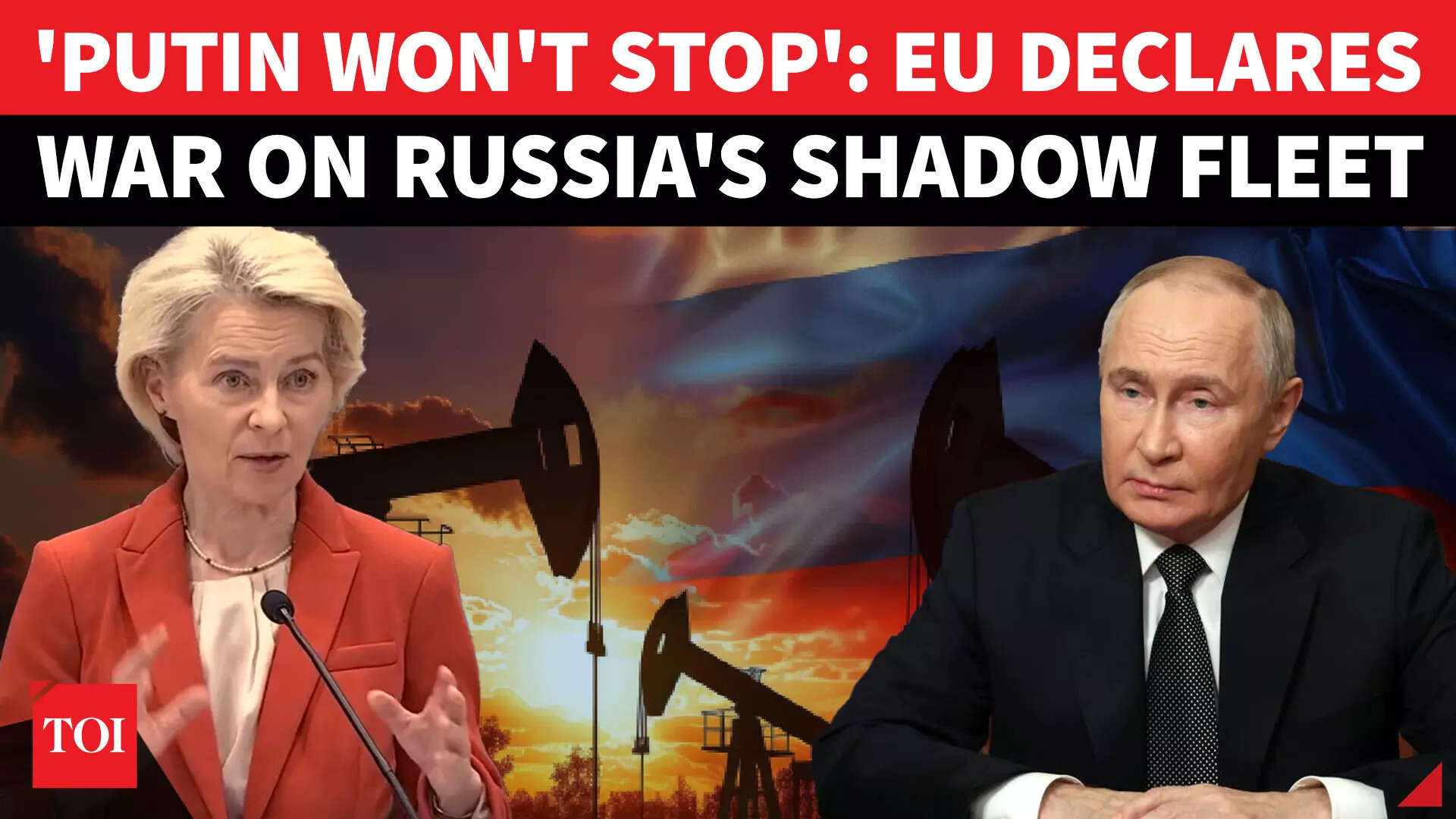Top Stories
Ursula von der Leyen Targets Russia’s Shadow Fleet After Kyiv Bombing

The European Commission President, Ursula von der Leyen, has announced a significant escalation in the European Union’s efforts to counter Russia’s so-called “shadow fleet.” This response follows a recent attack where Russian forces targeted the EU office in Kyiv, underscoring the ongoing tensions stemming from the war in Ukraine.
In a statement made on October 23, 2023, von der Leyen emphasized that the EU is tightening sanctions on this clandestine fleet, which is believed to facilitate the transport of Russian oil in defiance of existing restrictions. The aim is to disrupt Russia’s ability to export oil and undermine its revenue sources, a critical component of its military funding.
New Sanctions Target Russian Oil Exports
The European Union has been actively working to reduce its dependency on Russian energy since the onset of the conflict in Ukraine. The shadow fleet, consisting of vessels operating under obscure ownership to evade sanctions, has become a focal point of these efforts. The EU’s latest measures are designed to target these vessels directly and discourage any involvement in circumventing sanctions.
According to von der Leyen, the EU’s measures will not only tighten existing sanctions but also introduce new penalties aimed at those who aid in the operation of the shadow fleet. “We will ensure that Russia pays a heavy price for its aggression,” she affirmed, highlighting the bloc’s determination to impose consequences on Moscow’s actions.
Impact on Global Oil Markets
The implications of these sanctions could ripple through global oil markets. The EU, which has already significantly reduced its imports of Russian oil, is keen to curtail any alternative avenues for Russia to export its crude. By disrupting the shadow fleet, the EU aims to further isolate Russia economically.
Analysts suggest that the effectiveness of these sanctions will depend on the EU’s ability to enforce them rigorously. The shadow fleet operates with a degree of sophistication, utilizing various tactics to mask its activities. As von der Leyen pointed out, “We are prepared to take extensive measures to ensure that these vessels cannot operate freely.”
The recent bombing of the EU office in Kyiv has added urgency to these discussions. In response to this act of aggression, European leaders are increasingly united in their resolve to counter Russian actions decisively. The situation in Ukraine remains volatile, and the need for a robust response has never been more critical.
The EU’s approach reflects a broader strategy to apply pressure on the Kremlin while supporting Ukraine both militarily and economically. As sanctions evolve, the focus on the shadow fleet represents a significant aspect of the EU’s ongoing commitment to hold Russia accountable for its military actions.
In conclusion, the announcement by Ursula von der Leyen marks a pivotal moment in the EU’s strategy against Russia’s oil exports. As the situation continues to develop, the international community will be watching closely to see how these new sanctions impact both the conflict in Ukraine and the global energy market. The stakes are high, and the EU’s resolve appears steadfast in its quest to disrupt Russia’s oil supply chain.
-

 World4 months ago
World4 months agoSBI Announces QIP Floor Price at ₹811.05 Per Share
-

 Lifestyle4 months ago
Lifestyle4 months agoCept Unveils ₹3.1 Crore Urban Mobility Plan for Sustainable Growth
-

 Science3 months ago
Science3 months agoNew Blood Group Discovered in South Indian Woman at Rotary Centre
-

 World4 months ago
World4 months agoTorrential Rains Cause Flash Flooding in New York and New Jersey
-

 Sports3 months ago
Sports3 months agoBroad Advocates for Bowling Change Ahead of Final Test Against India
-

 Top Stories4 months ago
Top Stories4 months agoKonkani Cultural Organisation to Host Pearl Jubilee in Abu Dhabi
-

 Science4 months ago
Science4 months agoNothing Headphone 1 Review: A Bold Contender in Audio Design
-

 Top Stories4 months ago
Top Stories4 months agoAir India Crash Investigation Highlights Boeing Fuel Switch Concerns
-

 Sports3 months ago
Sports3 months agoCristian Totti Retires at 19: Pressure of Fame Takes Toll
-

 Business4 months ago
Business4 months agoIndian Stock Market Rebounds: Sensex and Nifty Rise After Four-Day Decline
-

 Politics4 months ago
Politics4 months agoAbandoned Doberman Finds New Home After Journey to Prague
-

 Top Stories4 months ago
Top Stories4 months agoPatna Bank Manager Abhishek Varun Found Dead in Well









